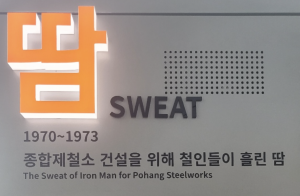Pohang: POSCO Museum
Photo essay of wall text of POSCO Museum of Pohang

Photo essay of wall text of POSCO Museum of Pohang

XXX


This essay scaffolds a discussion of how COVID19 is unfolding in India. A central question this essay hopes to build towards is: If we examine the ways COVID19 is unfolding in India, does "Ind
Covid-19 and class inequalities :
As India Battles Covid, Class Divide is Growing https://www.deccanchronicle.com/opinion/columnists/070520/sanjay-kumar-as-india-battles-covid-class-divide-is-growing.html
A Pandemic in an Unequal India https://www.thehindu.com/opinion/op-ed/a-pandemic-in-an-unequal-india/article31221919.ece
India cannot Fight Coronavirus without Taking into Account its Class and Caste Divisions https://scroll.in/article/956980/india-cannot-fight-coronavirus-without-taking-into-account-its-class-and-caste-divisions
The Lockdown Revealed the Extent of Poverty and Misery Faced by Migrant Workers https://thewire.in/labour/covid-19-poverty-migrant-workers
India's Response to COVID-19 Is a Humanitarian Disaster http://bostonreview.net/global-justice/debraj-ray-s-subramanian-indias-r...
Documentation of Disaster Relief Work :
PM-CARES Fund 'Not a Public Authority', Doesn't Fall Under RTI Act: PMO https://thewire.in/government/pm-cares-fund-not-a-public-authority-rti-act-pmo
Community volunteers:
I am interested in seeing how social ties and networks have been used to cope with (un)natural disasters. My research focus on places under disasters conditions such as Puerto Rico after hurricane Maria, in which social ties have made the difference between life and death. Furthermore, “natural” disaster has been used to approved austerity measures and unjust policies to impoverished communities like in New Orleans after Katrina. These policies were not new, as they are rooted in structures of power to preserve the status quo. Yet, people have resisted, “through a network of branches, cultures, and geographies” that has stimulated a reflective process of looking within for solutions rather than outside. As often this outside solutions are not only detached from community’s reality but can perpetuate social injustices and inequalities.
McKittrick, K., & Woods, C. A. (Eds.). (2007). Black geographies and the politics of place. South End Press.
Bullard, R. D., & Wright, B. (Eds.). (2009). Race, place, and environmental justice after Hurricane Katrina: Struggles to reclaim, rebuild, and revitalize New Orleans and the Gulf Coast. Westview Press.

The Environmental Impact Statement (EIS) is a document required by the National Environmental Policy Act
This link complements the Essay Bibliography of the Project Environmental Justice framing implications in the EIS.
This is the PECE essay bibliography for:
This is a collage made from the visuals discussed by this artifact's contributors at the T-STS COVID19 India Group meeting on November 24, 2020